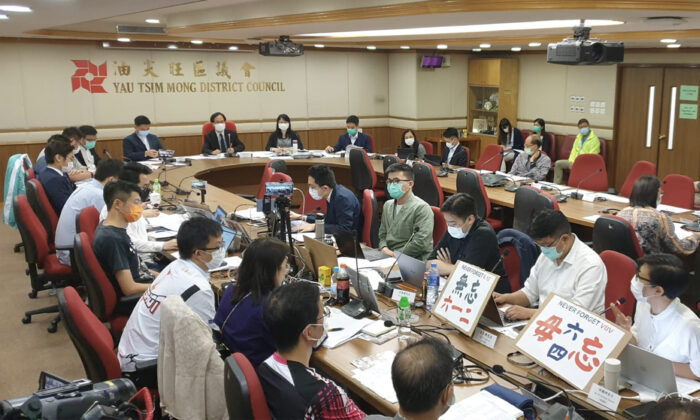- Home
- Job Openings
- Employment Law
- Litigation Cases
- HR Disciplines
- HR Benefits
- HR Glossaries
- HR Forms
- HR Community
In 2019, democracy took over Hong Kong District Council Election when Hong Kong democratic figures celebrated a landslide electoral win. Their victory was short-lived, however, after waves of disqualification and resignation.
Under the National Security Law, most pan-dem legislators have been thrown to jail, exiled, or migrated to the west permanently, resulting in about 70 percent of vacant seats in the district council.
The current term of the District Council expires on Dec. 31, 2023. Pro-CCP party DAB, Democratic Alliance for the Betterment and Progress of Hong Kong, recently proposed a significant reduction in the elected seats in the District Council and an increase in the number of indirectly elected or appointed chairs.
Former district councilors describe the current state of the district council as “close to its collapsing end,” and other current and former members have zero influence.
They also estimated about 50 to 100 people have already fled Hong Kong.
In 2019, the anti-extradition movement broke out, and the democrats and non-establishment factions won the election by a landslide and dominated 17 district councils and 388 seats.
In 2021, the Hong Kong government leaked a rumor that any legislators who get disqualified after their sworn-in ceremony will have to pay back their salary of one million Hong Kong dollars. That caused a lot of district councilors to resign before the ceremony had even happened. On top of a mass amount of resignations, many of the councilor’s sworn declarations were made invalid.
The wipeout of democrats caused 333 vacant seats in the council.
As of Sept. 26, 53 nongovernment and 93 pro-Beijing members are in place. The pro-democracy camp has lost its advantage.

